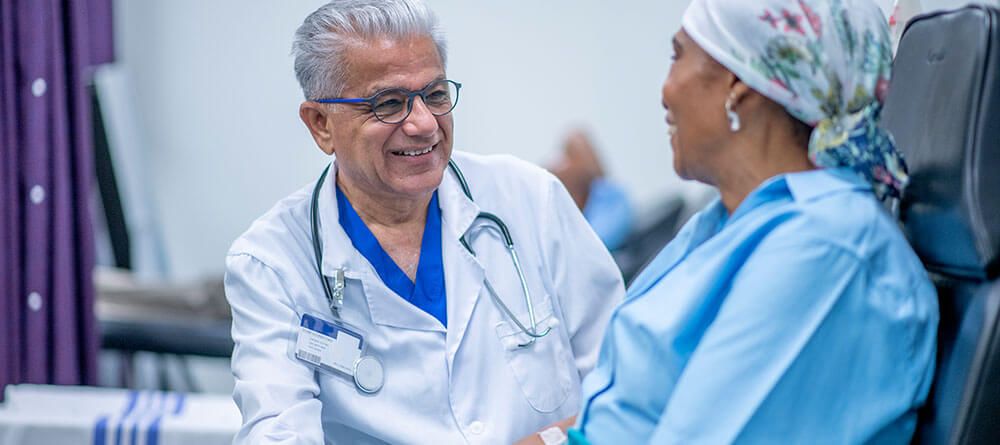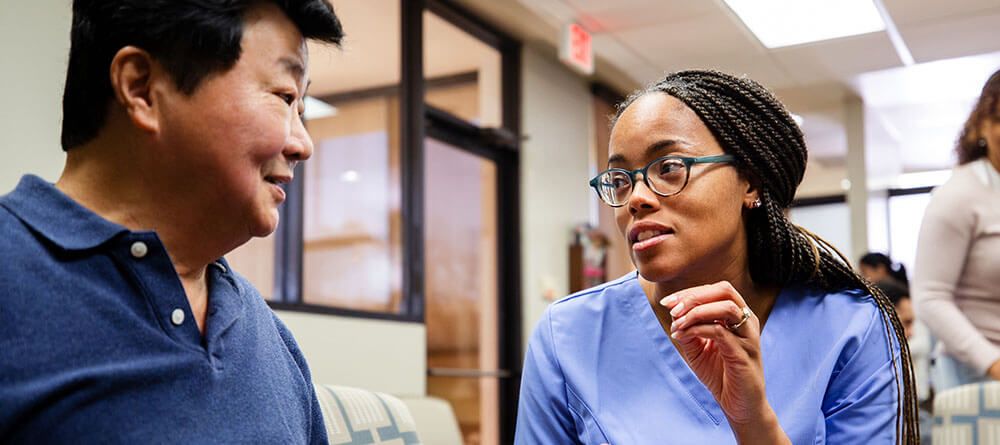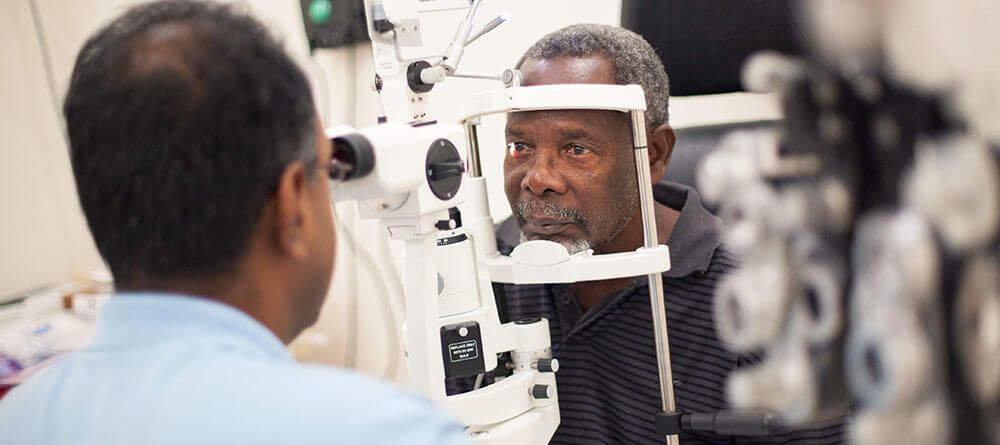Cultural competence has risen to the forefront in the conversation about the quality of healthcare in the US. The country’s most recent census data reveals that our population is diversifying even faster than predicted—and with that comes a rapidly evolving range of healthcare needs, systems of beliefs, language barriers, and more.
“Cultural competence is a critical component of practicing medicine because it ensures respect for the patient,” explains Dr. Arlette Herry, assistant dean of multicultural affairs at St. George’s University (SGU).
But what does this look like in practice? Join us as we break down the importance of cultural competence in healthcare and explore how medical schools are equipping future physicians to be effective practitioners for the most diverse and multiracial population the US has ever seen.

What is cultural competence?
When Dr. Herry thinks about cultural competence in healthcare, she focuses on the concept of cultural humility. This, she explains, encapsulates an awareness that your patient is multidimensional—that they come with different identities, including their gender, ethnicity, religion, socioeconomic status, marital status, education level, sexual orientation, and more.
“The willingness to explore and understand how these identities impact care is paramount in addressing health inequities and providing quality healthcare,” Dr. Herry continues. “Embracing cultural humility means the physician is aware of their own biases, understands how those biases inform their provision of care, and demonstrates a willingness to learn from their patients.”
“Embracing cultural humility means the physician is aware of their own biases, understands how those biases inform their provision of care, and demonstrates a willingness to learn from their patients.”
The Agency for Healthcare Research and Quality (AHRQ) notes that healthcare is defined through a cultural lens for both patients and providers. A person’s cultural affiliations can impact everything from where and how they seek care to how they describe symptoms and whether they follow care recommendations.
A culturally competent healthcare system is one able to provide care to patients with diverse values, beliefs, and behaviors. This requires attitudes and policies that support effective cross-cultural interactions. The AHRQ reveals a few examples of what this might look like in practice:
- Language assistance: This can take the form of hiring bilingual clinicians and staff members, along with employing qualified foreign language and American Sign Language interpreters.
- Cultural brokers: These professionals are brought on board to provide mediation between the traditional health beliefs and practices of a patient’s culture and the US healthcare system, acting as a bridge between patient and provider. This role could be filled by community health workers, interpreters, and patient navigators.
- Cultural competence training: Resource and training sessions can be held with the goal of increasing the cultural awareness, knowledge, and skills of clinicians and staff members.
As the American Academy of Family Physicians (AAFP) explains, a culturally competent healthcare system understands that a patient’s language and culture should never act as a barrier to receiving adequate care. Rather, these elements can be utilized as tools to improve outcomes.

Why is cultural competence in healthcare important?
“We have seen throughout history that disparities exist in healthcare,” offers Dr. Kandace LaMonica, family medicine specialist and chief resident for equity and diversity at Southwest Illinois University. The 2018 SGU alumna notes that this has been highlighted even further by the COVID-19 pandemic, with ethnic minorities being disproportionately affected.
“Cultural competence allows practitioners to provide quality care, regardless of a patient’s cultural background,” Dr. LaMonica continues. “In order to do so, providers must first acknowledge that these differences exist and how they can impact a patient’s healthcare needs.”
When it comes down to it, cultural incompetence can lead to some very real issues related to patient safety. One study found that patients with limited English proficiency were more likely to experience adverse outcomes than English-proficient patients. Another revealed that ethnic minorities are more likely to report dissatisfaction with their healthcare experiences and their interactions with physicians, often resulting in delay of care and lower adherence to medical treatments.
Failure to address cultural, language, or health literacy discrepancies can result in things like diagnostic errors, missed screenings, unexpected negative reactions to medication, and inadequate follow-up care. Cultural competency and respect have become critical components to reducing these healthcare disparities, as they help improve access to quality healthcare that is responsive to the needs of a diverse patient population.
“Understanding a patient’s values, beliefs, and backgrounds can open a door to better communication and build the foundation of a strong patient–physician relationship…”
“Understanding a patient’s values, beliefs, and background can open a door to better communication and build the foundation of a strong patient–physician relationship, which we know leads to better health outcomes,” Dr. LaMonica says.
It’s also helpful to note that the impact of cultural competency in healthcare stretches beyond the realm of direct patient care. The National Institutes of Health (NIH) reports that it’s equally important to prioritize cultural competence when it comes to medical research. Planning that does not consider principles of cultural respect will inevitably produce ineffective care systems.

How does SGU train culturally competent physicians?
The Association of American Medical Colleges (AAMC) has deemed cultural competency to be a vital aspect of every medical school’s curriculum. But different institutions will take different approaches to equipping their students to be effective in a multicultural healthcare system.
“SGU prides itself on preparing its Doctor of Medicine (MD) students to practice cultural humility by infusing diversity, equity, and inclusion into the curriculum,” Dr. Herry says, explaining that the School of Medicine hosts a number of different opportunities for students to explore these topics in greater depth.
“There are implicit bias awareness trainings, along with sessions on care of persons with disabilities or in need of rehabilitation, care of transgender patients, and the social determinants of health,” she continues. SGU often includes a reflective component in each of these experiences, allowing students to take an introspective approach to exploring the type of physician they hope to become.
“Being able to observe and participate in a healthcare system outside the US is a unique experience you won’t find in a lecture hall or by reading a textbook.”
Earning an MD at SGU’s campus on the island of Grenada presents its own unique opportunities for medical students. “Studying in a country with different beliefs and value systems was an opportunity for growth, both personally and professionally,” Dr. LaMonica says. “Being able to observe and participate in a healthcare system outside the US is a unique experience you won’t find in a lecture hall or by reading a textbook.”
While studying at SGU, Dr. LaMonica did her clinical rotations at a hospital where the primary languages were Spanish, Chinese (Mandarin), and Bengali. “I saw firsthand the many challenges patients face stemming from language barriers and different cultural beliefs,” she recalls. “Hearing their stories and learning about their individual beliefs and values helped shape my training.”
She found her experience at SGU helped her adapt and connect with patients from different backgrounds. “I continue to carry these experiences with me even now as a practicing family physician.”
Become a culturally competent physician
Things like cultural awareness and cultural sensitivity are important characteristics that all healthcare providers should display. But the CDC clarifies that cultural competence emphasizes the concept of effectively operating in different cultural contexts and altering practices to reach different cultural groups.
“By focusing on key areas of cultural competence, such as improved access to healthcare, recruitment of minority physicians, partnering with community health workers, and providing cultural competency training sessions, we can start to lay the building blocks needed to bridge gaps that exist today in healthcare,” Dr. LaMonica says.
She found the type of training she was looking for at the St. George’s University School of Medicine. Learn about more potential benefits in our article “6 Little-Known Perks of Attending an International Medical School.”


